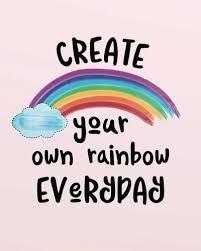People are often wired to be pessimistic or optimistic. I personally, am generally an optimistic person and like to find the best in people, things and situations. However, the school year is coming to an end, Christmas is almost upon and it is that crazy, yet exhausting time of the year. Even the most optimistic person can start to switch into ‘complainer’ mode and become negative.
So how do we find the ‘good’ that is all around us?
- Practise looking for goodness – The more we practise finding and saying positive things, the easier it is to find good in everything. Create a book that you can write or draw three good things that you saw or happened each day. After a few weeks, reread the entries in the book and be amazed at all the goodness in the world. When you go out for a walk, look for the good around you – the blossoming flower, the colour of the sky, the smells of the bush.
- Start small – Some people habitually focus on the negative and constantly complain and that can be a hard habit to break. So start small. Look for the tiniest specks of goodness and go from there.
- Look at the bright side – Everyone experiences tough, challenging times but it is possible to find good in even the hardest situations. Sometimes it might take a while to see the good. Be patient. Be realistic about life’s ups and downs. Look at the glass half full rather than half empty. For example, your child may not win the gymnastics competition but they did the best handstand of their life.
- Look for the good in others – This can be so easy to find in some people such as your family and friends. However, it can be harder for people that we may not connect with. Likewise, your child may not really ‘like’ another child at school or they are easily annoyed by them. We do not want to force people to like each other, but we can try and notice the good in others, regardless of our relationship with them. For example, your child may not mix with the child playing football but you can still notice that the other child may be skilled at football.
- Model being positive – When your child sees and hears you saying nice things about others or finding the good in tricky situations, you set the example for them. Talk to them and share your thinking with them. Tell your child if you have had a tough day, but then share a good thing that happened, however small it may be. So, when they tell you that they had the ‘worst day ever’ at school, ask them to think about the things that were good throughout the day. You can always find one!
I will leave you will this thought: A rainbow only appears after the rain.
Have a wonderful weekend.
Katrina Victor-Gordon
Mental Health and Wellbeing Leader


